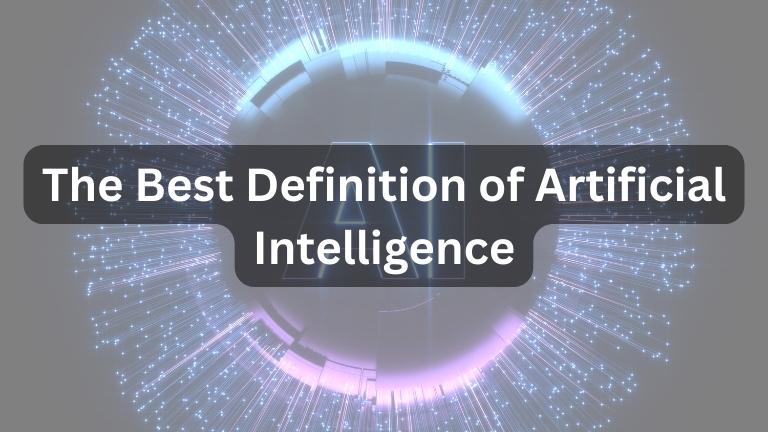Artificial Intelligence, or AI, has been a buzzword for decades now. It has gained immense popularity in recent times due to its revolutionary impact on various industries. However, what exactly is AI? What are its capabilities and limitations? In this article, we will explore the best definition of artificial intelligence and provide a comprehensive understanding of the concept.
What is Artificial Intelligence?
Artificial Intelligence refers to the simulation of human intelligence in machines that are programmed to perform tasks that would otherwise require human cognition. It involves the development of algorithms that can analyze data, learn from it, and make decisions based on that data. The primary objective of AI is to create intelligent machines that can perform tasks that typically require human intervention, such as speech recognition, image recognition, decision-making, and natural language processing.
Types of AI
There are three main types of AI: narrow or weak AI, general or strong AI, and superintelligence.
Narrow AI refers to machines that are designed to perform specific tasks, such as image recognition or speech recognition. These machines can perform their tasks with high precision, but they lack the ability to perform tasks that are outside their domain of expertise.
General AI, on the other hand, refers to machines that possess human-like intelligence and can perform any intellectual task that a human can. These machines are capable of learning and reasoning across different domains, making them highly versatile.
Superintelligence refers to machines that possess intelligence that surpasses human intelligence. These machines are still a theoretical concept and are not yet a reality.
Applications of AI
AI has revolutionized various industries, including healthcare, finance, retail, and manufacturing, among others. In healthcare, AI is being used to develop personalized treatment plans and to diagnose diseases at an early stage. In finance, AI is being used to detect fraud and to develop predictive models that can help investors make informed decisions. In retail, AI is being used to develop personalized shopping experiences for customers, while in manufacturing, AI is being used to optimize production processes and reduce costs.
The Best Definition of Artificial Intelligence
Given the complexity and versatility of AI, it is difficult to provide a single, comprehensive definition of the concept. However, the best definition of artificial intelligence is one that captures its essence and provides a clear understanding of its capabilities and limitations.
In simple terms, AI can be defined as the development of machines that can perform tasks that would otherwise require human cognition. These machines are programmed to learn from data, make decisions based on that data, and adapt to new situations.
Conclusion
In conclusion, AI has become an essential part of our lives, and its impact will only continue to grow in the future. Understanding the best definition of artificial intelligence is essential to comprehend its capabilities and limitations. By exploring the different types of AI, its applications, and its underlying concepts, we can gain a better understanding of this groundbreaking technology.









